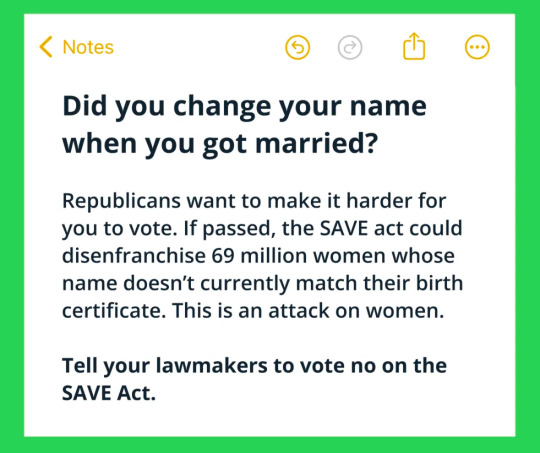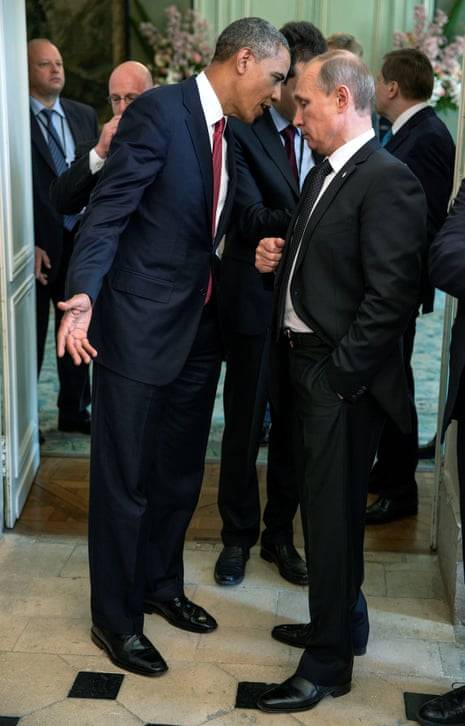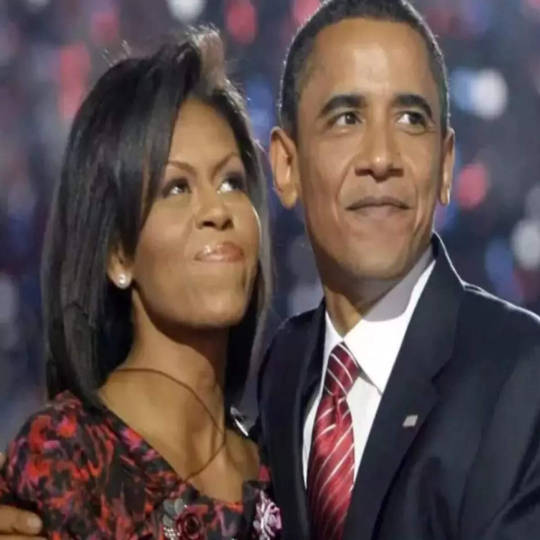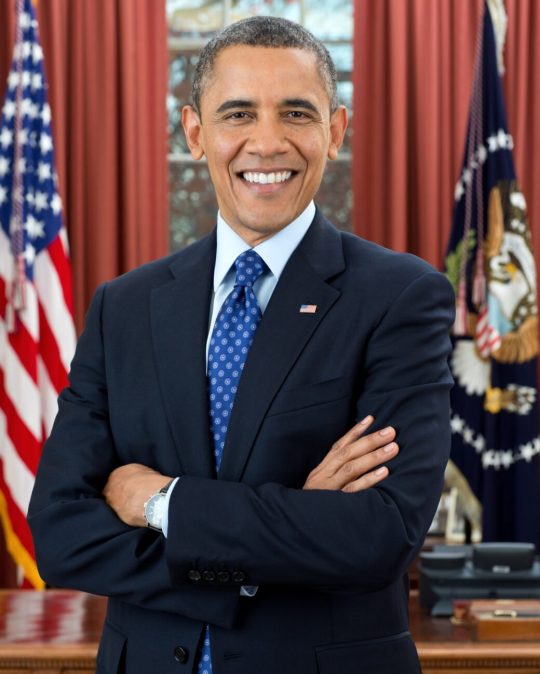#CONSTITUTIONAL
Explore tagged Tumblr posts
Text

#politics#us politics#political#donald trump#news#president trump#elon musk#american politics#jd vance#law#voting rights#womens rights#womens suffrage#oligarchy#late stage capitalism#capitalism#economic#economy#human rights#constitution#constitutional#unconstitutional#women#laws#lawyers#vote#name change#elon#musk#tesla
166 notes
·
View notes
Text
America"s First family. America's golden years. Obama is the best US President of our lifetime.
America was leading the world
TACO now leads the circus 🎪





#military parade#june 14#june 14 2025#republicans#white house#constitutional#ice#resist#45#impeach#impeachnow#trump#democrats#latinos#immigrants#notmypresident#mass deportations#deport#deportations#america#american dream#camelot#jd vance#Obama#michelle obama#president#usa#big beautiful bill#no kings#no kings day
27 notes
·
View notes
Text
““If anyone is being detained or removed based on the administration’s assertion that it can do so without judicial review or due process,” said Jamal Greene, a law professor at Columbia, “the president is asserting dictatorial power and ‘constitutional crisis’ doesn’t capture the gravity of the situation.”
Mr. Trump raised the stakes on Tuesday by calling for the impeachment of the judge who issued the order, James E. Boasberg of the Federal District Court in Washington, describing him on social media as a “Radical Left Lunatic.”
The president did so even as the issues at hand have just started to be tested in a case that seems headed to the Supreme Court.
A few hours later, Chief Justice John G. Roberts Jr. issued an unusual statement, seemingly prompted by such exhortations, and perhaps by the filing of articles of impeachment against Judge Boasberg by a Republican member of the House.
“For more than two centuries, it has been established that impeachment is not an appropriate response to disagreement concerning a judicial decision,” the chief justice said. “The normal appellate review process exists for that purpose.”
(…)
Aziz Huq, a law professor at the University of Chicago, said that assessing whether a given development is a constitutional crisis is “generally unhelpful.”
“I think it’s more useful to say that this is moving us into a completely different kind of constitutional order, one that’s no longer characterized by laws that bind officials and that can be enforced,” Professor Huq said. “The law, in other words, becomes a tool to harm enemies, but not to bind those who govern. That is a quite different constitutional order from the one that we’ve had for a long time.”
(…)
“It should go without saying that, at the Justice Department, the rule of the road is that, in the absence of a true emergency, the government complies with judicial orders, even if the orders are patently lawless, until it can get them reversed — either by the issuing judge or a higher court,” Andrew C. McCarthy, a former federal prosecutor, wrote in the right-leaning National Review. “It’s all right to complain bitterly about court orders, but they are not to be ignored, much less knowingly flouted.”
(…)
The lawyer representing the government at Monday’s hearing had another argument: that Judge Boasberg was powerless to order the planes to turn around once they had left American airspace. That assertion was also labeled unconvincing by many legal experts.
“The administration has this completely wrong,” Hannah L. Buxbaum, a law professor at Indiana University, wrote in a blog post. “The judge is ordering the administration to take action inside the United States — that is, to instruct the planes to turn around. That instruction will in turn cause something to happen elsewhere (the pilots will change course), but that doesn’t make the order impermissibly extraterritorial.”
(…)
Pamela S. Karlan, a law professor at Stanford, said the development was emblematic of how the Trump administration had acted in its first months in office.
“The problem with this administration is not just acute episodes, like what’s happening with Judge Boasberg and the Venezuelan deportation,” Professor Karlan said. “It’s a chronic disrespect for constitutional norms and for the other branches of government.”
Asked whether the nation had reached a tipping point plunging it into a constitutional crisis, Professor Karlan questioned the premise. “‘Tipping point’ suggests a world in which things are fine until suddenly they’re not,” she said. “But we’re past the first point already.””
“It is not hyperbole to say that the future of American constitutional democracy now rests on a single question: Will President Trump and his administration defy court orders?
Federal judges have issued more than a dozen temporary restraining orders and preliminary injunctions against Trump administration actions. But it is unclear whether the government will comply, and in at least two cases, judges have said their orders were ignored.
The Trump administration is already facing at least 100 legal challenges. Two recent court orders no doubt will test Mr. Trump’s patience.
(…)
But the hard truth for those looking to the courts to rein in the Trump administration is that the Constitution gives judges no power to compel compliance with their rulings — it is the executive branch that ultimately enforces judicial orders. If a president decides to ignore a judicial ruling, the courts are likely rendered impotent.
(…)
Removing federal judges because of disagreement with their rulings would be unprecedented. The Constitution allows for impeachment only for “treason, bribery, or other high crimes and misdemeanors.” There is no plausible basis for claiming that standard has been met. And it is risible to see conservatives, who repeatedly went to court to enjoin Biden and Obama administration policies, now saying that the judiciary should not review executive branch actions. All of this is about an administration that does not want to be constrained by the Constitution, laws or courts.
It is unsettling even to be asking whether the president would defy a court order. Throughout American history, presidents have complied with mandates from the courts, even when they disagree. In the 1930s, the Supreme Court struck down many of the New Deal programs of Franklin Roosevelt. He was angry and proposed expanding the size of the Supreme Court to uphold his initiatives, but never went as far as defying the rulings. When the Supreme Court declared unconstitutional Harry Truman’s order to seize steel mills during the Korean War, a major blow to his presidency, Truman, too, was angry, but he complied with the decision.
Similarly, when the court ordered Richard Nixon to turn over the White House tapes, he did so even though it meant the end of his presidency. More recently, when courts blocked Biden administration policies — from student loan relief to vaccine mandates — the White House complied.
(…)
But there are no definitive instances of presidents disobeying court orders. The line attributed to Andrew Jackson about the chief justice, that “John Marshall has made his decision, now let him enforce it,” is likely apocryphal. Purportedly about a Supreme Court ruling that Georgia could not enforce its laws against whites on Cherokee land, the quotation did not appear in print until long after Jackson’s death. And, in fact, the court order was directed at Georgia, not Jackson or the federal government. In addition, modern scholarship has undermined the story that Abraham Lincoln defied an order from the chief justice invalidating a suspension of habeas corpus during the early days of the Civil War.
Thus far, the Trump administration has given conflicting signals as to whether it will defy court orders. On Feb. 11, Mr. Trump said, “I always abide by the courts, and then I’ll have to appeal it.” And that same month, the acting solicitor general, Sarah Harris, wrote in a footnote in a brief to the Supreme Court: “The executive branch takes seriously its constitutional duty to comply with the orders of Article III courts.”
But just one day prior, Mr. Trump posted on social media, “He who saves his Country does not violate any Law.” A week earlier, Vice President JD Vance posted, “Judges aren’t allowed to control the executive’s legitimate power,” implying that the president decides what is “legitimate.” This follows a history of assertions by Mr. Vance suggesting that the president need not comply with adverse court rulings. And while this did not involve a court order, in January, in one of his first acts in office, Mr. Trump signed an executive order to delay enforcing a federal ban on TikTok, even though that ban had just been upheld by a unanimous Supreme Court.
The reality — and Mr. Trump and those around him know it — is that he could get away with defying court orders should he, ultimately, choose to do so. Because of Supreme Court decisions, Mr. Trump cannot be held civilly or criminally liable for any official acts he takes to carry out his constitutional powers.
Those in the Trump administration who carry out his policies and violate court orders could be held in contempt. But if it is criminal contempt, Mr. Trump can issue them pardons. Although civil contempt can involve being jailed until the person complies with the court order, that is enforced by the United States marshals, who are part of the Department of Justice and thus under the president’s control.
Defiance of court orders could be the basis for impeachment and removal. But with his party in control of Congress, Mr. Trump knows that is highly unlikely to happen.
If the Trump administration chooses to defy court orders, we will have a constitutional crisis not seen before. Perhaps public opinion will turn against the president and he will back down and comply. Or perhaps, after 238 years, we will see the end of government under the rule of law.”
““Honest to god, I’ve never seen anything like it,” said Steven Levitsky, a Harvard political scientist and coauthor of “How Democracies Die” and “Competitive Authoritarianism.”
“We look at these comparative cases in the 21st century, like Hungary and Poland and Turkey. And in a lot of respects, this is worse,” he said. “These first two months have been much more aggressively authoritarian than almost any other comparable case I know of democratic backsliding.”
(…)
Mr. Levitskysaid he was struggling to find a precedent for what the Trump administration is doing.
“The zeal with which these guys are engaging in increasingly open, authoritarian behavior is unlike almost anything I’ve seen. Erdogan, Chavez, Orban — they hid it,” Mr. Levitsky said.
(…)
The Trump administration’s tactics are highly unusual, said Andrew O’Donohue, a nonresident scholar at the Carnegie Endowment for International Peace, who studies clashes between courts and elected leaders around the world. Typically, battles over court power have tended to be extensions of political divisions.
(…)
But Mr. Trump and the federal courts are not ideological foes in the same way. Federal judges hold a range of views, but the judiciary has grown more conservative in recent decades. And the Supreme Court, which has a conservative majority, has delivered the political right a number of significant legal victories in recent years, including granting presidents sweeping immunity from criminal prosecution.
(…)
Usually, voters won’t reward their elected leaders for violating norms, disrupting a stable constitutional order, or taking actions that are intrinsically unlawful, said Aziz Huq, a law professor at the University of Chicago and co-author of the book “How to Save a Constitutional Democracy.”
But that calculus may not apply to Mr. Trump, who has based his political appeal on gleefully flouting sacrosanct norms. Refusing to accept courts’ authority may actually appeal to the president’s base, Huq said, if they take it as evidence of strength rather than lawlessness.
Past presidents have also been more constrained by elites within the political establishment.
“Richard Nixon had to care not just about public opinion, but Walter Cronkite, and Republican and Democratic Party leaders,” Mr. Levitsky said. “That constraint, which was difficult to measure, but I think very real in the 20th century, has lifted.”
(…)
“If even a dozen Republicans in Congress had the capacity to stand up to Trump, this would be a very different ballgame,” Mr. Levitsky said. “Trump and Musk and Stephen Miller could not do this alone. They’re doing it with the full cooperation of the majority party in Congress.”
“We’re in a bad place,” he said.”
“In a book written about 30 years ago, I defined a revolution as “the destruction of an existing state by members of its own society, followed by the creation of a new political order.” Although the ultimate impact of Trumpism remains to be seen, at first glance his aspirations (and those of his supporters) appear to fit that definition. As the past two months have made abundantly clear, U.S. President Donald Trump isn’t just trying to modify or reverse the policies of his predecessors. All presidents do that to some degree. Rather, he and his supporters are seeking to destroy or radically alter some of the key institutions that have governed the United States for decades, including the meaning of the Constitution itself. They are also attempting to implement far-reaching—indeed, revolutionary—changes to key aspects of U.S. foreign policy, moves far more fundamental than Richard Nixon’s outreach to China or George W. Bush’s ill-fated effort to transform the Middle East.
(…)
The good news is that Trumpism isn’t a mass movement like the ones that toppled the Bourbons, the Romanovs, or the Pahlavis, and Trump isn’t that kind of revolutionary leader. Trumpism is a “revolution from above,” where disenchanted members of the elite (frequently the military) gain power and replace key elements of the old order with new ones. In this sense, it is more like the Turkish revolution led by Mustafa Kemal Ataturk (a disaffected Ottoman general), the Egyptian revolution led by Gamal Abdel Nasser and the “Free Officers” (more disaffected military leaders), or the Meiji Restoration in Japan. “Revolutions from above” can also lead to conflict and war, but they tend to be less disruptive than mass revolutions “from below.”
Nor is Trumpism likely to prove contagious. Trump and allies like Steve Bannon have made common cause with autocrats or illiberal democrats such as Crown Prince Mohammed bin Salman of Saudi Arabia, Prime Minister Viktor Orban of Hungary, and former President Jair Bolsonaro in Brazil, and the administration has shown a strong affinity for right-wing extremists such as the Alternative für Deutschland in Germany and the National Rally in France, but these movements predate Trumpism and were not inspired by him. Trump hasn’t invented a radically new revolutionary model; he’s just following the playbook for democratic backsliding and self-dealing perfected by leaders like Orban or Turkey’s Recep Tayyip Erdogan. Having the world’s most powerful country lined up with these autocrats is significant, but we’ve seen this movie many times before. And it is worth noting that Trump’s early moves have helped mainstream parties in several places, most notably Canada, Germany, and Great Britain. The French Revolution it ain’t.
It is more accurate to think of Trump not as a revolutionary leader advancing a radically new and potentially contagious model for the world, but as a reactionary leader seeking to turn the clock back. The “MAGA” slogan gives the game away: If you’re claiming to make the country great again, your gaze is firmly fixed in the rearview mirror and not on the future.
Instead of the managed free trade that fueled seven decades of economic growth, he wants import taxes (aka tariffs) like the ones that President William McKinley imposed more than a century ago. Instead of racial and gender equality and tolerance for other minorities, he wants a return to white supremacy and traditional gender roles. Instead of sustained global engagement guided by international law and collaborative multilateral institutions in which Washington plays a leading role, he wants to disengage. Instead of great-power competition constrained by norms, he wants the great powers to be free to grab whatever they can, just as they did a century ago. Instead of freedom of speech and patriotic dissent, he wants a muzzled press, subservient universities, and the ability to deport legal residents solely because of their political views. Instead of presiding over a diverse nation whose energies are renewed by the arrival of ambitious immigrants, he wants an America surrounded by walls, where only some of the people born here are citizens. Instead of public policy based on science and evidence, he wants the “facts” to be whatever he and Robert F. Kennedy Jr. say they are.
Apart from the peculiarly destructive role that Elon Musk is playing in this process, there is nothing new or revolutionary about any of this. It’s the familiar autocrat’s playbook that has been perfected and pursued in many other places—usually to their detriment—just not here in the United States. Lest we forget: The United States was founded in a revolution against this way of running a country, and it has moved closer to those stated ideals over time. Until now. On the eve of the 250th anniversary of the Declaration of Independence, it would be tragic indeed if what we end up celebrating next year is not the revolutionary principles contained in that document, but rather their demise.”
3 notes
·
View notes
Text

Trump Weird News - Congress Ground Trump Tariffs!!!
Take Back Your Constitutional Birthright!
#weird news#trump#donald trump#tariffs#constitutional#birthright#congress#take back#ground trump#politics
2 notes
·
View notes
Text
Society is divided into two groups: the elites and the junkers. The elites have access to top-tier machines and resources that enhances their quality of life. Junkers, on the other hand, get the scraps. But one day, Junkers decided to secede.
2 notes
·
View notes
Text
Understanding Delhi's Status: Union Territory or State?
The status of Delhi has been a subject of confusion for many. Is it a Union Territory or a State? This blog seeks to provide an in-depth analysis of Delhi's status, its unique constitutional position, and the implications of its current status.
4 notes
·
View notes
Text
Multnomah County Court in Oregon has failed every legal test I’ve given them so far.
1 note
·
View note
Text

Harvard University
launched a free college course online that covers basic U.S. Government, understanding the constitution and how to recognize a dictatorship takeover.
Here is the link to the free course "We the People: Civic Engagement in a Constitutional Democracy"
https://pll.harvard.edu/course/we-people-civic-engagement-constitutional-democracy.
We understand that the current catalog of FREE COURSES at Harvard is being EXTENSIVELY EXPANDED, so you'll want to check their website from time to time to see which new courses are being added.
Government Courses | Harvard University
#harvard university#free#online courses#basic u.s. government#understanding the constitution#how to recognize a dictatorship takeover
29K notes
·
View notes
Text
As of Jan 21st, 2025, a full copy of the constitution is no longer available on whitehouse.gov. I feel like this is a good time to remind everyone that the biggest threat to authoritarianism and facism is a well educated and informed population. Inform yourself and fight.
a copy of the document can still be found on the archives website. I think now is probably a good time to read it if you haven't and download it, incase it is erased from here as well.
https://constitutioncenter.org/media/files/constitution.pdf
#anti trump#fuck trump#2024 presidential election#anti republican#anti donald trump#anti facist#fuck republicans#fuck donald trump#2024 presidential race#election 2024#us constitution#american constitution#constitutional law#pro choice#project 2025#american politics#censorship#us politics#elon musk#donald trump#trump#trump is not my president#I know he won#fuck the gop#fuck dictatorships
24K notes
·
View notes
Text


#politics#us politics#political#donald trump#news#president trump#elon musk#american politics#jd vance#us constitution#constitution#law#america#conservative#republican#republicans#make america great again#maga#protest#legal#right to protest#conservatives#democracy
27K notes
·
View notes
Text
Trump Ended Body Cam Mandates For Police Officers
Executive Order 14074, titled “Advancing Effective, Accountable Policing and Criminal Justice Practices to Enhance Public Trust and Public Safety,” was signed by President Joe Biden on May 25, 2022, the two-year anniversary of George Floyd’s murder. It aimed to implement meaningful police reform at the federal level. Here's what it did — and what happened when it was revoked by Trump in 2025:
🔵 What Executive Order 14074 Did
Mandated Body Cameras for federal law enforcement:
Required officers in agencies like the DEA, FBI, ATF, and U.S. Marshals to wear body-worn cameras during certain operations and to activate them during arrests and searches.
Video footage was to be retained and reviewed for transparency and accountability.
Created the National Law Enforcement Accountability Database (NLEAD):
Tracked misconduct by federal officers.
Agencies had to report disciplinary actions like terminations, suspensions, or de-certifications, making it harder for officers with misconduct records to move between agencies unnoticed.
Restricted Use of Chokeholds and No-Knock Warrants:
Banned federal officers from using chokeholds unless deadly force was authorized.
Restricted no-knock entries to only when necessary for officer safety.
Promoted De-escalation and Bias Training:
Called for updated use-of-force policies emphasizing de-escalation.
Expanded training on implicit bias and community engagement.
Set a Model for Local Police Departments:
Though it couldn’t mandate local reform, the EO encouraged states and cities to adopt similar policies by tying some federal funding to reforms.
🔴 What Happened When Trump Rescinded It in 2025
In early 2025, President Trump revoked Executive Order 14074 through a new executive order focused on “supporting law enforcement without political interference.” Here’s what changed:
Body Cam Requirements Were Rolled Back:
Agencies like the DEA immediately ended their body camera programs, citing the new executive direction.
Without a mandate, each agency can now decide if and when to use body cams.
NLEAD Was Deleted:
The Department of Justice deleted the federal police misconduct database, removing a central tool for tracking bad actors across agencies.
This raised concerns about transparency and accountability, as officers with serious misconduct could potentially be rehired elsewhere.
Pushback Against Reform Agreements:
The Trump administration began undoing reform agreements with cities like Minneapolis and Louisville, which had entered consent decrees with the DOJ following high-profile police violence cases.
Shift Toward “Pro-Police” Messaging:
Trump’s new policy emphasized full support for police “without burdening them with bureaucracy,” positioning body cam mandates and misconduct tracking as overreach.
⚖️ Why This Matters
Critics argue that rescinding EO 14074:
Undermines public trust, especially in communities affected by police violence.
Reduces transparency, making it harder to hold officers accountable.
Signals a federal retreat from efforts to reform policing practices post-George Floyd.
Supporters of Trump’s reversal claim:
Federal mandates are overreaching and should be left to local jurisdictions.
The policies created a “chilling effect” on police effectiveness.
The federal government should support law enforcement without restricting tactics or tools.
#body cam#body cameras#police#law enforcement#federal#trump#donald#republican#constitutional#executive order#14074
0 notes
Text
The Chairman of the Leadership Council praises Russia's steadfast support for the Yemeni people and their constitutional legitimacy.
President Rashad Alimi Meets with Russian Charge d’Affaires On Thursday, President Dr. Rashad Mohammed Alimi, head of the Presidential Leadership Council, welcomed Yevgeny Kudrov, the Russian Charge d’Affaires in Yemen. The meeting focused on the latest developments in Yemen and the broader regional landscape, as well as international issues of mutual interest. Diplomatic Greetings and…
#Chairman#Constitutional#Council#Leadership#legitimacy#people#praises#Russias#steadfast#support#Yemeni
0 notes
Text
#japan#live#peace#story#dream#reality#history#god#order#diplomacy#peaceful#courage#only#nation#impossible#nonsense#protect#idealism#eliminate#proven#optain#constitutional#ideals#cowardly
0 notes
Link
This document discusses the opinion of the U.S. Court of Appeals in Abrego-Garcia v. United States, focusing on the issue of whether Miranda warnings were properly administered and whether the defendant’s Fifth Amendment rights were violated. The court explores the legal boundaries of custodial interrogation, the necessity of clearly informing suspects of their rights, and the implications of voluntary versus involuntary confessions. The decision sets an important precedent in understanding how constitutional protections apply during police interrogations and reinforces the standard that confessions obtained without proper Miranda warnings cannot be used against defendants in court.
#abrego#amendment#confes-sion#constitutional#counsel#court#custodial#due#fifth#garcia#interrogation#miranda#procedures#process#rights#ruling#self-incrimination#supreme#venezula#voluntary
0 notes
Text
South Korea's Constitutional Court Removes President Yoon Suk Yeol From Office
SEOUL, South Korea (AP) — South Korea’s Constitutional Court removed impeached President Yoon Suk Yeol from office on Friday, ending his tumultuous presidency and setting up an election to find a new leader, four months after he threw South Korean politics into turmoil with an ill-fated declaration of martial law. The unanimous verdict capped a dramatic fall for Yoon, a former star prosecutor…
0 notes